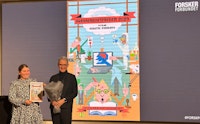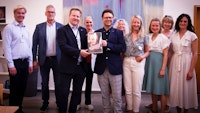Field of study: Music Therapy
Adrian Seberg: A liberating music therapy

A qualitative study on music therapy in meeting with Norwegian compulsory mental healthcare.
Summary
This study asks what music therapy can be for service users within compulsory mental healthcare. As a humanistic and recovery-oriented approach, Norwegian music therapy may be viewed as part of a social-academic movement that aims to enhance the participants’ possibilities for action, and Norwegian work ethical guidelines stress that music therapists should support self-determination for the service user. These values, however, are challenged when working within cultures of involuntary treatment.
Today we witness changes within the mental health care in Norway regarding both compulsory treatment and the emphasis on alternatives to medications. At the same time music therapy is on its way to be established within mental healthcare across the country. It is important that music therapists are educated about coercion and aware of their attitudes when they are positioned within discourses historically characterized by different coercive measures.
The research question
Previous research on user experiences points at self-determination and freedom within music therapy as important aspects of music therapy within mental health care and in adjacent practices. Also, previous research teaches us that people with low motivation for treatment may profit from music therapy and that music therapy can be experienced as something else than other treatments.
The overarching research question for this study is: What can music therapy be for service users within compulsory mental healthcare?
Material, methods and theoretical framework
The design of the study is a qualitative one. The empirical material is constructed through joint interviews in which seven music therapy participators undergoing coercive mental healthcare were interviewed together with their respective music therapists. The interviews were transcribed verbatim and analysed thematically. Three main themes were constructed through the thematic analysis: 1) voluntary music therapy, 2) motivating music therapy, and 3) health promoting music therapy.
The study is based on a humanistic perspective on music therapy, which includes notions from recovery-oriented music therapy, resource-oriented music therapy, and community music therapy. A postmodernism-informed critical perspective has influenced the study, and especially Foucault's notion on discourse.
Results
Seberg suggests the term ‘liberating music therapy’ as an answer to the initial research question of what music therapy can be for people within compulsory mental healthcare. In the description of what a liberating music therapy can be, attention is drawn toward freedom-enhancing perspectives on three layers: 1) within the music therapy sessions, 2) within the recovery process, and 3) within society. These three layers are also discussed in regards to three different levels of music therapy as: 1) a practice, 2) a profession, and 3) an academic discipline. Seberg argues that music therapists have the responsibility to enable a sense of freedom within the music therapy session, as well as to strive for self-determination within the mental healthcare system. As part of an academic discipline, music therapists should oppose the unnecessary use of compulsory mental healthcare, and support self-determination and recovery-enabling structures, both in mental healthcare and in society as a whole.
The dissertation
The dissertation is a monograph, written in English. It is available in NMH's digital archive.
Articles relevant
Published: Sep 2, 2014 — Last updated: Dec 18, 2025



